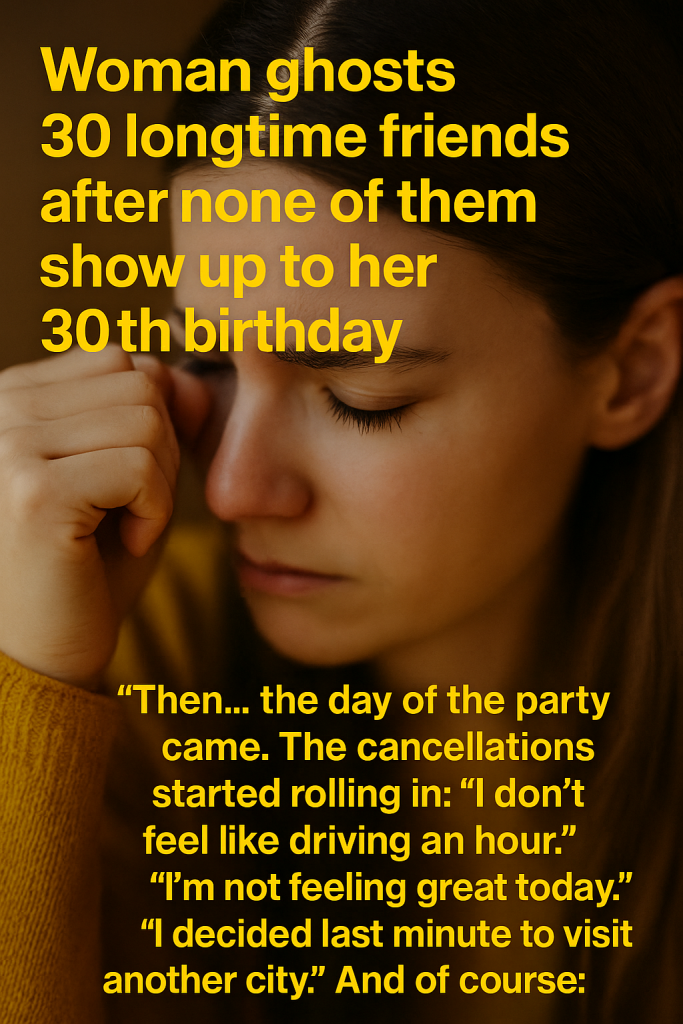A recent viral story has captured widespread attention after a woman reportedly ghosted 30 longtime friends following their collective failure to show up for her 30th birthday party. The incidents and fallout have sparked conversations online about friendship, loyalty, and social expectations in the digital age.
The woman, who is in her early 30s, had planned a milestone birthday celebration well in advance, inviting three dozen close friends from various stages of her life. According to accounts circulating on social media, the day of the party saw a sudden influx of cancellation messages, with none of the guests ultimately attending the event.
Sources say that as the RSVPs started turning into last-minute excuses—ranging from work emergencies to vague personal issues—the birthday woman’s sense of disappointment and hurt grew. In response, she took the drastic step of cutting off contact with all 30 friends who stood her up, effectively ending years-long friendships in one bold move.
The incident has resonated with many people who have experienced feelings of abandonment or betrayal in social contexts. Some sympathize with the woman’s reaction, emphasizing the emotional weight that comes with reaching a significant life milestone like a 30th birthday, especially when surrounded by unresponsive or flaky friends.
Experts in social psychology underscore that such actions, while understandable from an emotional standpoint, can have complicated consequences. Friendships are built over time with mutual effort, and a single event—while painful—may not fully reflect the dynamics of each relationship.
On social media platforms, the story has spurred debates. Some commenters argue that the friends’ cancellations could have legitimate reasons that do not merit permanent severing of ties. Others feel the woman was justified in her decision, viewing the collective absence as a significant breach of trust.
Adding to the discussion, some users reflect on how digital invitations and communication can sometimes make social obligations feel less binding, contributing to an increase in last-minute cancellations and “ghosting” behavior even in long-term friendships.
Meanwhile, the woman herself has remained mostly silent on the matter, though insiders note that she has prioritized her own well-being and is focusing on new social connections who value her presence. Her story serves as a poignant reminder of how important it is to nurture and respect friendships, especially during key moments in life.
In an era where social relationships are increasingly shaped online, this incident highlights the emotional risks involved and sparks a broader conversation about how we support one another through life’s significant milestones.
Whether viewed as an extreme reaction or a justified stance, the viral tale is a striking example of what can happen when expectations collide with hurt feelings within personal networks.



